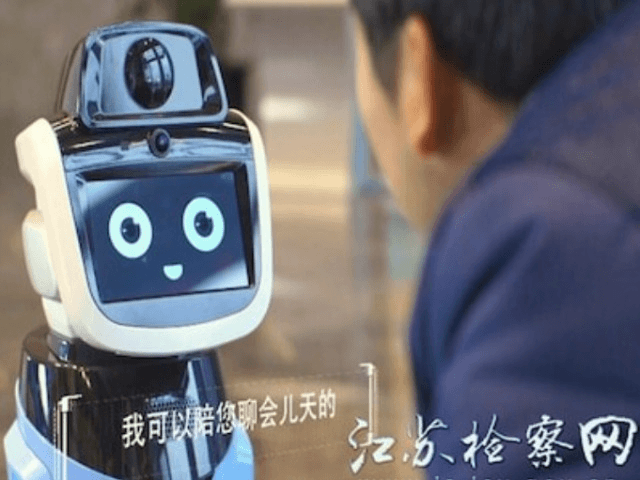In one of the strangest examples of workforce automation to date, China claims it has been successful in cleaning up court dockets using a swarm of robot attorneys.
The bots are three-foot-tall rolling pedestals topped with toaster-shaped heads containing video screens with big anime eyes. They can review legal documents, approve indictments, and even generate arrest warrants. Their computer-screen faces generate little cartoon smiles when they do any of these things.
According to this video report, the lawbots just roll right up to courtroom visitors and begin dispensing legal advice in a high-pitched voice:
The UK Telegraph reports that Chinese officials claim the robots have reviewed 150,000 cases since they were deployed in Jiangsu province last September, and corrected mistakes in about half of those cases, resulting in 541 commuted sentences. The robots are evidently somewhat more lenient than human Chinese judges who hand down convictions in over 99 percent of cases.
Their efforts appear to be concentrated on low-level offenses such as traffic violations, although the Daily Caller reports China is testing a more advanced system that will also be able to handle homicide, burglary, and other more serious charges.
It is a pity the lawyer droids were not ready to perform marriage ceremonies in time to accommodate engineer Zheng Jiajia, who grew frustrated with the search for a human mate and married his sexbot Yingying in April. History will regret that a human was obliged to preside over these groundbreaking nuptials.
There are actually automated legal assistants in the United States, and they are even described as “robot lawyers,” but they are not literally R2D2-sized robots rolling around courtrooms and chirping at people with helium voices. The general consensus from technology experts is that automated assistance will shave a few percentage points from the workloads of American lawyers and clients, and computer systems might be able to arbitrate some civil disputes, but nothing quite like the Chinese experiment seems to be on the horizon just yet.

COMMENTS
Please let us know if you're having issues with commenting.